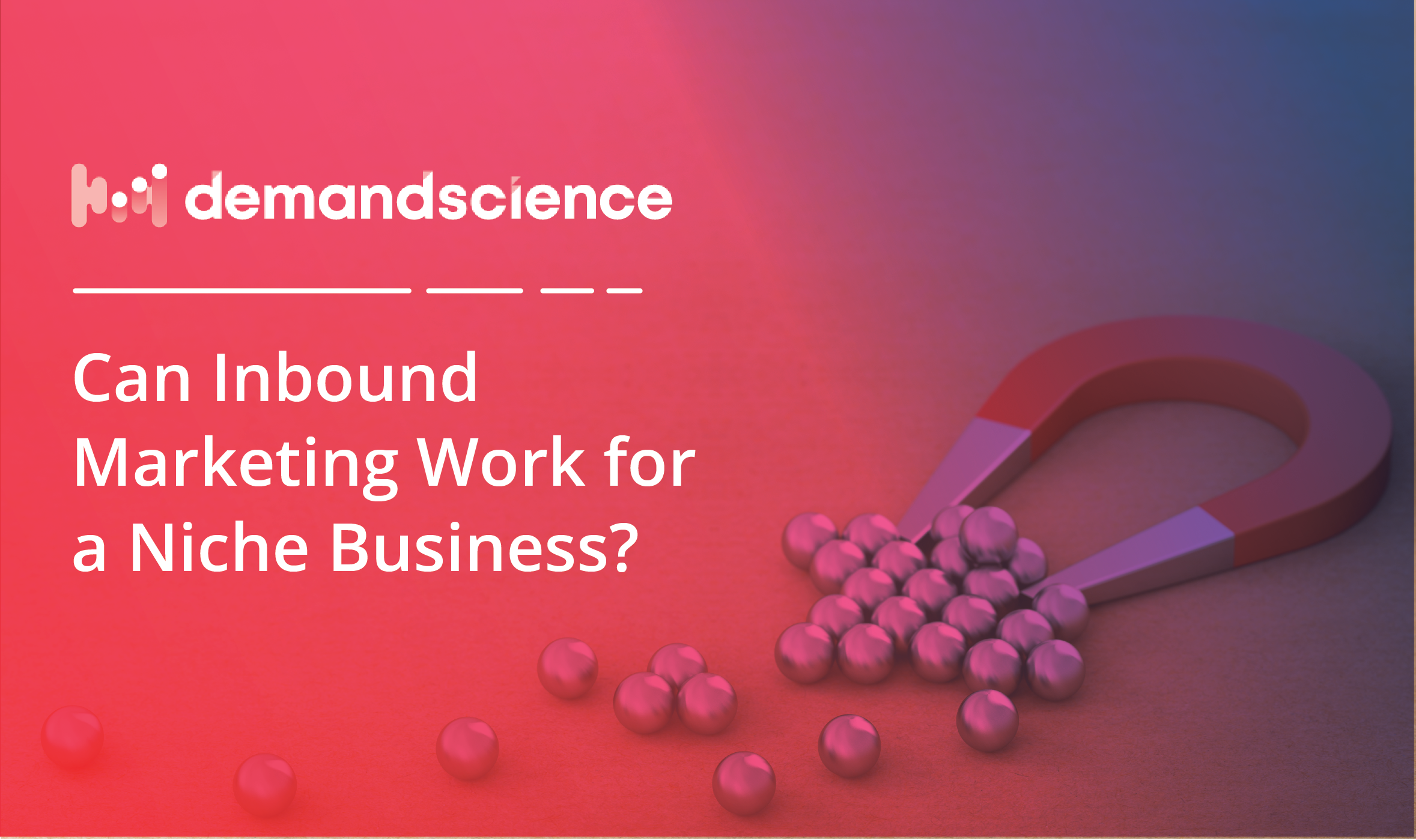
Niche companies have significantly benefited from the internet. Before digital marketing came to be, niche firms had to waste a considerable portion of their marketing resources on advertising and campaigns that were utterly irrelevant to the majority of the people who saw them. Digital marketing changed that. Now, businesses can run targeted ads that guarantee a broader reach to potential customers. In terms of efficacy for specialized enterprises, inbound marketing outperforms digital marketing and is a near-perfect fit.
An Overview of Inbound Marketing
Inbound marketing is simply a set of interconnected, strategically planned marketing activities to attract prospective customers to your content or website. On the other hand, outbound marketing includes classic marketing strategies such as sign advertising, direct mail, billboards, and so on. Email marketing also falls under outgoing, although it can be grouped as inbound if done right, attributed to those subscribed to your emails.
How then do you distinguish between the terms, given how much digital marketing is inbound? The truth is, the distinction is insignificant. However, digital marketing may be defined as a brand’s marketing efforts, such as social networking, blogging, and creating white papers. Inbound marketing falls under a brand’s digital marketing operations designed for a specific goal. It deals with how each element of that strategy aligns to achieve the intended outcomes.
Inbound Marketing for Niche Business
Many niche businesses using inbound marketing have recorded incredible success over the years, and for many reasons. Niche businesses benefit more from proper targeting way more than mainstream companies. Although any company can use targeting to build an audience and get new consumers, companies that serve a specific sort of client or provide a specific sort of service will find it even more helpful.
That said, why should you commit your niche business’ time and resources to inbound marketing?
Get Visibility for Your Expertise
Since you run a niche business, you have particular expertise your prospects and consumers find important. So, it is not just about finding anyone, but connecting with prospects in the right sector and job and have problems requiring your solutions. There are typically a limited number of places to find sector-specific information, particularly in the niche industry. Seventy-one percent of B2B buyers go online for that information, and you want to be there when they come searching.
Buyers seeking your specialized expertise will find you if you provide content that explicitly tackles topics related to your specialized business. It does not end there. You also need to optimize the content and include the keywords that prospects and customers might use to get your product visible to the people interested in them.
For example, if your niche is commercial plumbing services, you will need to identify your typical customer and define your geographic service locations for targeted marketing. As the owner, you need to know the keywords that your customers might use when searching for the company’s services. You can then combine those with keywords unique to the geographic location and incorporate them into your website’s content.
Create Original and Valuable Content
It is a fact that content marketing is essential for digital success. One of the reasons is that today’s customers want it. They do not want sales pitches; they want information that adds value to their lives, whether something funny or something they can learn from.
However, content marketing is beyond that. For instance, regularly providing unique material provides Google with more pages to crawl on your website. This may have a good impact on your ranking on search engine result pages. Furthermore, as you offer more high-quality information on the internet, potential customers are more likely to find you.
Having a blog means you will almost probably be using more keywords than you would on your website. More individuals may be reached with a wider variety of – yet relevant – keywords, resulting in more qualified leads and conversions.
Social Media Interaction with a Specific Audience
Finding a niche audience is not limited to search engines; it may happen through various internet platforms, including social media. These platforms allow you to connect and interact directly with your target audience, whether you utilize Facebook, Twitter, Instagram, LinkedIn, or an industry-specific platform. Also, it becomes less of a hassle identifying the specific contacts using the social media platforms. As you identify and sort your target demographic, the easier it is to discover the exact contacts using social media. Beyond your website and physical or phone interaction, using these sites can improve engagement with your prospects and a face-to-face or over-the-phone conversation.
When it comes to determining if a specific social network is practical for marketing to a niche audience, there are certain things you need to clarify. These include:
- The type of users on the platform
- The type of content they are interested in and will probably share
- The prospect rating of the users and the chances of being influencers to your potential customers
- Amount of time and resources needed for participation
- Form of content exposure to other platform users
- The ROI potential
- Possibility of creating new and fitting content for the platform
Attract Potential Customers
Except you run a local business, you will probably not get enough suitable prospects within a few miles of your location. However, as you widen that circle to include the entire state, country, or even the whole world, you will notice an incredible boost in the number of prospects. Inbound marketing can help you create a web presence and attract prospects regardless of their location. In addition, inbound marketing has a long-term effect. You can get new leads with content produced for inbound marketing at any time. Advertisements, whether online or offline, have a short lifespan. Emails can be erased if they are no longer needed. Direct mail is ineffective and almost always ends up in the trash.
The blog article you churned out one Tuesday afternoon at your desk might be discovered by a prospect a year later. Therefore, you should provide original, high-quality material consistently. Each piece of content may be viewed as a lead-generating tool that will continue to generate leads for you well into the future.
Establish Yourself as a Thought Leader
As an expert in your niche industry, you have specific knowledge, and sharing it with your prospects establishes your authority. It also boosts confidence in you as a product or service provider. Business blogging gives you the chance to showcase your knowledge before someone interacts with you, and with that, the relationship builds gradually. It is also a chance to start your own media organization, presenting your expertise so that people can consider you a thought leader and expert.
Talking about your expertise gives you visibility, but with potential customers as well as other journalists and bloggers who may decide to create a post about you and give a backlink. Social media interaction and blogging have been the source of PR opportunities for many companies. It gives them a chance to demonstrate thought leadership and connect with publishers looking for supporting articles for their content.
High-Quality Lead Conversions
You need more than quality website traffic to succeed with inbound marketing. You need to be able to identify the visitors and follow up with qualified leads. Therefore, developing targeted marketing offers that your potential customers will find valuable is one major aspect of inbound marketing. Therefore, upon placing a targeted and mouth-watering offer on your website’s landing page, you can be sure that the visitors who complete the form will be qualified leads that need extra follow-up.
Measure Results
Niche businesses are typically on a shoestring budget. Inbound marketing initiatives, fortunately, have the added advantage of being significantly quantifiable. Inbound marketing allows you to track everything from where your visitors originate to what material they download to which marketing campaigns attract actual customers. This will help you figure out what is working and what is not. The importance is that it helps you make smarter marketing decisions and choose where you should spend your time and money in the future to achieve the greatest outcomes.
Optimize Automation
Marketing automation, a fundamental part of current inbound marketing, is one of the most effective tools a niche business can use. Automating complicated email chains that deliver suitable information in response to behavioral indications and record the outcomes in a single database, among other activities, makes it faster, simpler, and more cost-efficient. A/B testing your email campaigns is a simple way to see which designs work best.
You can also avoid being caught in spam traps by sending your emails at predefined times corresponding to your targets’ working schedules. Automation also allows you to utilize strong, personalized forms to collect contact information, develop new connections, and track campaigns to ensure you are not spending money on a strategy that is not working.
In Conclusion
Niche firms can benefit from inbound marketing’s capacity to nurture leads just as much as companies with broader audiences. Its capacity to assist you in precisely targeting the right individuals correctly at the right time adds to its strength and attractiveness. Understanding these major benefits can assist you in making the best marketing choices possible. Remember, inbound marketing can help, regardless of the niche business you run.










